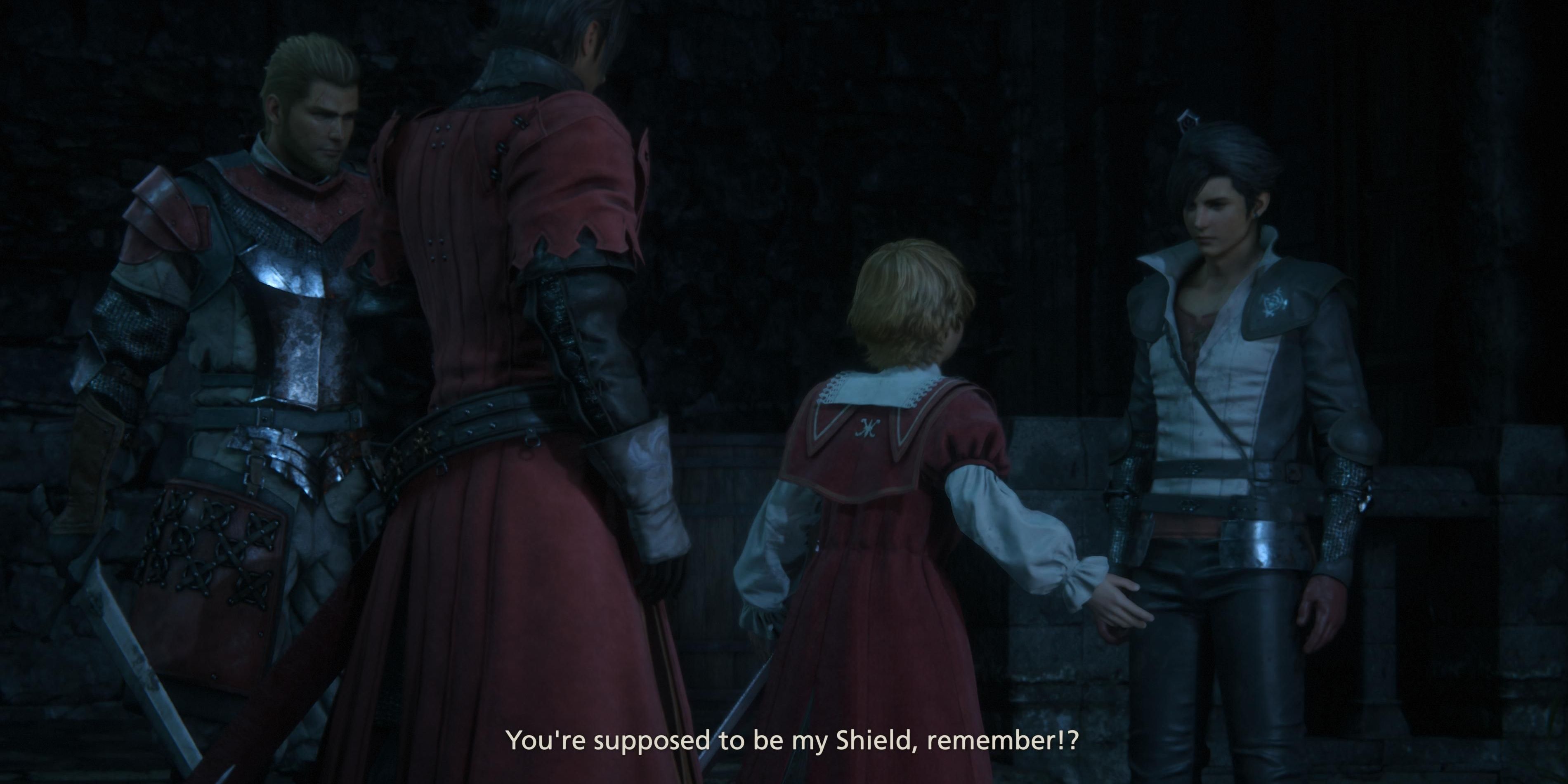As I'm currently in full-on cram mode for my N2 JLPT (Japanese Language Proficiency Test), I couldn't help but pay close attention to whether the translators in Final Fantasy 16 are taking a word-for-word approach or trying to capture the essence of the text through localization. Personally, I tend to prefer the latter. I played the two-hour demo twice: once with Japanese audio and English subtitles, and then switching them for my second playthrough. And based on that experience, I believe that the English localization team of Final Fantasy 16 is giving us a fine example of how to enrich the story and effectively convey its true spirit.
For starters, there are the Eikons, mythical beasts around which the story of Final Fantasy 16 revolves. Their human owners, called Dominants, use the powers of the Eikons to play a significant role in shaping the cultural, spiritual, and political climate of each nation. And this plays into why the original Japanese word Shōkanjū (lit. summoned beast) won't be as meaningful if its translation got recycled into, for example, "Aeon" like in Final Fantasy 10 or "Eidolon" in the case of Final Fantasy 13.
Aeon only refers to a supreme deity that existed for a long period of time (fitting for an object of religious worship like in FF10), and Eidolon is like a spirit-image of a person or an idea, while Eikon refers more broadly to a person or thing regarded as a symbol of a belief, nation, community, or cultural movement. These are concepts that are heavily apparent — and perfectly encapsulated — in Final Fantasy 14's Primals/Eikons and their influence on the story (though they use a different Japanese word there), as well as Final Fantasy 16.
On a micro level, the existence of an Eikon like the Phoenix determines the life path of characters like protagonist Clive, as well as his family dynamics, even before they are born. His mother favors his brother Joshua over him due to Joshua being chosen by the Phoenix upon birth, while Clive was rejected. On a macro level, the Eikons basically control the course of entire wars and national structures, with the Dominants serving as country advisors to parliaments, as in the case of the Dhalmekian Republic. Or, at the other extreme, you can find them getting hunted like sinning witches in the Iron Kingdom, which considers Eikons and their Dominants unholy abominations, worthy only of execution.
The choice of words for certain thematic concepts also caught my attention. For example, Clive is referred to as Joshua's "knight" in the Japanese version, meanwhile, he's called Joshua's "shield" in the British translation. It may not seem like much of a difference, but if you watch the two-hour drama of the demo unfold, you would realize that "shield" corresponds more to Clive's situation and the source of his trauma — the focal point of the demo — which is his inability to protect Joshua from the invasion of another country (and from his own uncontrollable 'Eikonic' power).
Benedikta (the wind Eikon's dominant) is one character who definitely shines a lot through the demo and is clearly more imposing and sassy in English compared to her Japanese counterpart. For example, in the very first scene, she's seen following her lover and political rival, Hugo (or Fugo in the Japanese version), out of a council chamber in which he's just used his bombastic personality and massive size to defy his superior's order to stay off the battlefield, going so far as to calmly force the man back down into his seat and literally blow smoke into his face before stoically walking out.
Catching up to Hugo in the hallway outside the chamber, our Japanese-track Benedikta simply calls out his name amiably, while in the English-language version, she blurts out "You cock!" and follows it up with a mischievous laugh that doesn't exist in the Japanese track. It's a classic double entendre, as some of our more PG-minded readers can interpret her comment as an assessment of his cocky attitude in a formal setting, and the rest of us can interpret it as ... well, that thing that we're all thinking. Adding some extra layers to their relationship, our English-speaking Benedikta also calls Hugo "my lion" instead of just strong love, or Aishiteiru, as in the Japanese.
For me, these subtle changes help add more personality to the power dynamic between the two and made the transition between scenes more natural, which is no surprise considering the motion capture is originally centered around the English voice actors' performances.
Also, even before her infamous boss battle at the end of the demo, Benedikta would tell the protagonist Clive in Japanese that "her mood is bad" and that "cattle should know their place". Meanwhile, in English, she would forcefully question him, "You dare to make demands on me?" and follow it up with a poetic rendering of the aforementioned cattle idea by saying, "Fool is the shepherd who heeds every bleat of the flock, and I will suffer yours no longer." Combined with the air of authority and poise in her walking demeanor, these changes feel more effective to me by a wide margin than the original Japanese script.
Details like these are abundant throughout the demo, but I chose to address the ones that I felt were integral to the core of the story and how it was expressed in a way that influenced my appreciation of it. Needless to say, the British voice acting is spot-on in conveying the medieval, Game-of-Thrones-y feel of the story, and now, I definitely can't wait a second longer for the full experience on June 22.




